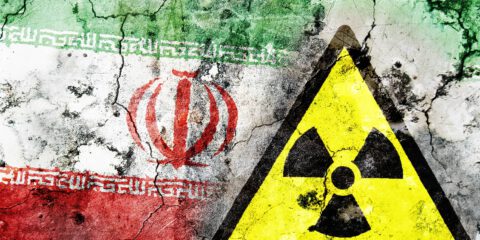The Turkish opposition’s landslide victory in recent municipal elections indicate that with continued tacit Kurdish collaboration with the opposition and given the deteriorating economy and growing desire for change, the next general snap-elections may be far more challenging for President Erdoğan.
Although municipal elections are not considered a significant political inflection point, when it comes to Turkey they constitute genuine public approval tests for both the ruling government and the opposition.
Thus, the Turkish opposition’s landslide victory in the March 31 municipal elections is historic. With 37.4% of the vote, Turkey’s founding party, the Republican People’s Party (CHP) won a nationwide election for the first time in 47 years. With this historic achievement the party of Turkish secularism not only smashed its 25% glass-ceiling but at the same time secured its domination of the country’s major cities – the capital Ankara, Istanbul, and Izmir. Moreover, for the first time ever the CHP even managed to penetrate the conservative Central Anatolia region and gained control of conservative strongholds such as Kırşehir and Kırıkkale. While in total the CHP has acquired 35 provincial municipalities, – out of 81 – the ruling Justice and Development Party (AKP( won in only 24, with 35.7% of the vote. It is also noteworthy that the relatively low voter turnout (76.6%) compared to the high voter turnout (88.9%) in the last general elections also played in the opposition’s favor– especially in the provinces.
Given the tense nature of the election campaign, the political discourse during campaigning was not limited to regular local municipal issues such as housing, transportation, and environmental problems but rather expanded to Turkey’s chronic challenges such as dealing with the aftermath of the deadly 2023 earthquake, the deteriorating economy, and the alliances formed by the pollical parties to maximize their gains at the ballot box.
As the bitter defeat in the May 2023 general elections shattered the opposition alliance, President Recep Tayyip Erdoğan wanted to seize the momentum and sought to inflict another humiliating defeat on the opposition. As the former opposition parties, the Good Party, Felicity Party, Future Party and Democracy and Progress Party refrained from declaring their support for CHP mayoral candidates – especially in Istanbul and Ankara – the chances for Erdoğan’s camp seemed to have increased significantly. In addition, the Kurdish, Peoples’ Equality and Democracy Party (DEMP) – considered as the king makers in Istanbul – followed the trend and nominated candidates both in Istanbul and Ankara. However it intentionally fielded candidates who were not charismatic so as not to weaken the CHP candidates.
The seeming collapse of the opposition bloc led to imprudence and lightheartedness in the ranks of the pro-Erdoğan camp. This deceptive picture led Erdoğan’s allies to act irresponsibly. To maximize their political gains, the Nationalist Movement Party (MHP) declared partial support for the AKP in some provinces (such as Istanbul and Ankara) whilst the Islamist New Welfare Party (YRP) withdrew its support entirely from the AKP and nominated candidates on its behalf and even adopted a critical election campaign against the AKP. On top of that, the YRP attempted to create the perception that the party is the real home of Turkish Islamists by challenging Erdoğan for maintaining trade ties with Israel. It adopted an extremely aggressive social media campaign on this matter. The YRP also attacked Erdoğan on welfare issues. In this context, YRP head, Fatih Erbakan, the son of the deceased former Turkish Islamist Prime Minister Necmettin Erbakan, openly asked Erdoğan to double state pension payments to 20 thousand Turkish Liras (620 Dollars).[1] Following the disastrous election results from Erdoğan’s perspective many Turks believe that pensioners – who number some 15.8 million people[2] – punished Erdoğan for his opposition to raising pensions by more than 33%.[3]
In the aftermath of the elections, the YRP’s efforts bore fruits. By taking the municipalities of the conservative Yozgat and Şanlıurfa provinces as well as winning in 39 districts all over Turkey, the party increased its bargaining chips vis-à-vis Erdoğan. Having been seriously devastated by the election results, the AKP severely criticized YRP’s attitude and portrayed the party as being the core cause of the opposition’s success against the conservative camp.
In contrast to the YRP, throughout the election campaign the Nationalist Movement Party refrained from criticizing the Justice and Development Party but the split in the alliance between the two parties caused great harm in the ballot box to both. The fall of the conservative Kütahya province to the CHP indeed summarizes the drama for the AKP. By receiving 29.6% of total votes, the CHP managed to defeat the MHP (29.2%) and the AKP (27.7%).[4] If both parties had formed a joint list in this province – as they did during the last general elections – the CHP would have had almost no chance to win. Therefore, prior to the next general elections, both the AKP and the MHP will most likely draw the necessary conclusions from this bitter defeat and will not provide any chances to the CHP.
As we can see, the disunity of the pro-Erdoğan bloc contributed significantly to the success of the CHP. However, the groundbreaking success of the secular party cannot be reduced solely to the strategic mistakes of the conservative bloc.
After its historic failure in the May 2023 elections, the CHP finally managed to get rid of its previous leader Kemal Kılıçdaroğlu and had him replaced with Özgür Özel. As can be recalled, during the last general elections, despite his lack of charisma and Alevi identity – which constitutes an obstacle to election in pious Sunni-Muslim provinces – Kılıçdaroğlu insisted on his presidential candidacy and thus led to defeat of the anti-Erdoğan opposition camp. In the aftermath of the May 2023 defeat, the anti-Erdoğan bloc disintegrated and failed to maintain unity even in key provinces such as Istanbul and Ankara. Despite all the hardships during the election campaign, CHP’s charismatic mayors Ekrem İmamoğlu of Istanbul and Mansur Yavaş of Ankara continued their line of adopting a positive agenda and did not act against former allies – first and foremost Meral Akşener’s Good Party.
Analysis of the current local election results shows that the Turkish electorate formed an informal opposition pact of the sort that its leaders failed to form. The CHP’s constructive approach and its readiness to remove Kılıçdaroğlu was rewarded. Parallel to that Akşener’s antagonist stance towards the CHP was severely punished as her party only managed to take the Nevşehir province.
While Good Party’s “Iron Lady” Akşener was hurt, the Turkish electorate rewarded the CHP and the DEMP for their initiative of nominating women candidates. Four DEMP-affiliated women candidates won in the conservative Eastern Anatolian provinces while the CHP’s women candidates scored a groundbreaking achievement with six metropolitan municipalities and fourteen districts, including Üsküdar – one of the most conservative districts in Istanbul where President Erdoğan resides.[5]
Indeed, the fall of Üsküdar into secular hands and especially to a woman mayor who does not wear a hijab clearly marks the depth of the radical change. It seems that the Erdoğan administration’s failure in ameliorating the country’s fragile economy, the steady devaluation of the Turkish Lira, the rising high cost of living and deepening unemployment were triggers for change.
One of the most important consequences of these elections was the rise of Istanbul mayor Ekrem İmamoğlu as the ultimate opposition figure to challenge the AKP in the May 2028 general elections. The young İmamoğlu (52) managed to defeat Erdoğan’s candidates both in the 2019 and 2024 elections. In other words, he proved to the opposition that Erdoğan is not invincible. Therefore, beginning from his first term he was frequently attacked by Erdoğan and his party. Having failed to defeat İmamoğlu at the ballot box, the AKP initiated two criminal cases against him, filing corruption and insult charges against public servants. İmamoğlu’s next trial will be held on April 31. In the aftermath of the elections, given İmamoğlu’s skyrocketing popularity, Erdoğan may use the judiciary to ban İmamoğlu from running in the next general elections.
No matter who represents the opposition in the next elections, the conservative bloc’s candidate will once again be Erdoğan. According to the Turkish constitution, Erdoğan’s presidency will conclude at the end of his current term d. But that is only on paper: Article 116 of the very same constitution states clearly that in case of a snap election the same president can declare his candidacy for another five-year term.[6] Erdoğan’s close associates Bekir Bozdağ[7] and Mustafa Elitaş[8] have already began to prepare the ground for his exceptional candidacy.
Ironically, the bitter defeat in the municipal elections also play into Erdoğan’s hands when it comes to justifying his potential snap-election candidacy. Indeed, the AKP without Erdoğan – as could be seen on March 31 where Erdoğan himself was not the subject of the elections – fails to achieve victory. Therefore, inevitably the Turkish President will “answer the calls from his base” and will seek to act as “the savior” of his party and political cause by expanding his presidency for another five years.
However, due to Kılıçdaroğlu’s departure from the CHP, the continuation of the Kurds’ tacit collaboration with the opposition, the deteriorating economy, and the growing desire for change – embodied in the potential candidacy of İmamoğlu – the next general snap-elections will be far more challenging for Erdoğan. Even if he wins the elections, that will only prove the appeal of his charismatic leadership. But it will also highlight the weakness of the AKP – which will most likely turn into an ordinary political party post Erdoğan. In conclusion, the 2024 local elections indicate that the AKP’s hegemonial role in Turkish politics may be drawing to an end.
Notes:
[1] “Erbakan AKP’ye seslendi, şartlarını açıkladı: ‘İstanbul adayımızı çekmeye hazırız’”, Sol, March 28, 2024, https://haber.sol.org.tr/haber/erbakan-akpye-seslendi-sartlarini-acikladi-istanbul-adayimizi-cekmeye-haziriz-392424 [Accessed: April 2, 2024]
[2] “31 Mart 2024 Seçimlerinin Belirleyici Gücü Büyük Ölçüde Emekliler Olacaktır.”, Yeniden Refah Partisi, https://yenidenrefahpartisi.org.tr/page/31-mart-2024-secimlerinin-belirleyici-gucu-buyuk-olcude-emekliler-olacaktir-/2747#:~:text=Yeniden%20Refah%20Partisi-,31%20Mart%202024%20Se%C3%A7imlerinin%20Belirleyici%20G%C3%BCc%C3%BC%20B%C3%BCy%C3%BCk%20%C3%96l%C3%A7%C3%BCde%20Emekliler%20Olacakt%C4%B1r,15.851.244%20emekli%20yer%20almaktad%C4%B1r. [Accessed: April 2, 2024]
[3] “Erdoğan yüzde 42,6 oranında zam açıkladı ama milyonlarca emeklinin maaşı yüzde 33 artacak”, Medyascope, January 17, 2024, https://medyascope.tv/2024/01/17/erdogan-yuzde-426-oraninda-zam-acikladi-ama-milyonlarca-emeklinin-maasi-yuzde-33-artacak/ [Accessed: April 2, 2024]
[4] “31 Mart 2024 Yerel Seçimleri / KÜTAHYA Belediye Başkanlığı Seçim Sonuçları”, Hürriyet, https://secim.hurriyet.com.tr/31-mart-2024-yerel-secimleri/kutahya-ili-yerel-secim-sonuclari/ [Accessed: April 2, 2024]
[5] “Yerel Seçim Sonuçları 2024 | 81 ilden 11’ini kadınlar yönetecek… İşte kazanan isimler”, Hürriyet, April 1, 2024, https://www.hurriyet.com.tr/gundem/yerel-secim-sonuclari-2024-81-ilden-11ini-kadinlar-yonetecek-iste-kazanan-isimler-42438883 [Accessed: April 2, 2024]
[6] “Türkiye Cumhuriyeti Anayasası”, https://www.icisleri.gov.tr/illeridaresi/turkiye-cumhuriyeti-anayasasi [Accessed: April 2, 2024]
[7] “Bozdağ’dan Erdoğan’ın dördüncü kez aday olabileceğine dair açıklama: TBMM’nin kararıyla ‘seçimlerin yenilenmesi’…”, Artı Gerçek, March 10, 2024, https://artigercek.com/politika/bozdagdan-erdoganin-dorduncu-kez-aday-olabilecegine-dair-aciklama-tbmmnin-287123h [Accessed: April 2, 2024]
[8] “AKP’li Elitaş’tan ‘final’ yorumu: Millet Erdoğan’ı isterse bizi ölüm ayırır”, Sol, March 9, 2024, https://haber.sol.org.tr/haber/akpli-elitastan-final-yorumu-millet-erdogani-isterse-bizi-olum-ayirir-391598 [Accessed: April 2, 2024]
JISS Policy Papers are published through the generosity of the Greg Rosshandler Family.
Photo: IMAGO / Xinhua









 - בניית אתרים
- בניית אתרים